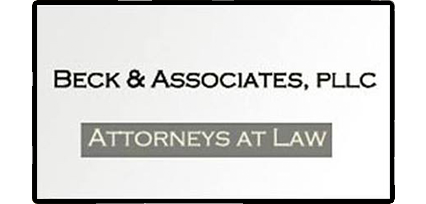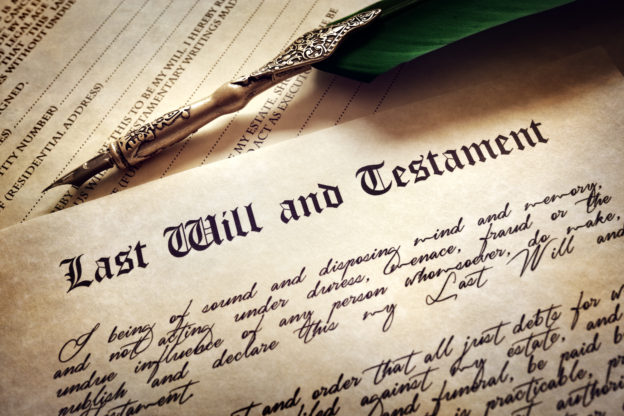Blended marriages: The Unintended Consequences of Dying without a Will or Trust
Sadly, the rules of descent and distribution which apply if someone dies without a will or trust may provide an unexpected outcome. It has been our experience that many people have common misunderstandings regarding how these rules are applied and are unaware of nuances which modify distributions under specific circumstances. In this day and age of mixed and blended families, it is unlikely that anyone would want old statutory descent and distribution laws to control who receives or manages assets earned over a lifetime of hard work. A common misconception we encounter is that many people believe their spouse will inherit everything when they die intestate (without a valid will or a valid trust which otherwise fully disposes of his or her assets), which is often their underlying intention. However, that is simply not always the case in Texas. Pursuant to the rules of descent and distribution, if you die intestate and have children from outside your current marriage, then your half interest of all community property in your marriage will be shared amongst your children instead of being passed along to your surviving spouse who owns the other half. Under most circumstances, this is an unwelcome result for the surviving spouse who now owns their homestead with their deceased spouse’s children, whom likely cannot share in payment of the mortgage, upkeep and other related expenses. Then without a judicial partition or the agreement of deceased spouse’s children who are co-owners, the surviving spouse will likely not be able to sell the marital homestead. This situation is further complicated if any of the deceased spouse’s children are minors, because minors lack the legal capacity to consent to the sale of their real property which must be granted to an adult through judicial means and with court supervision, which will likely substantially increase the time and cost involved in selling real property. The complications only become worse if the deceased spouse dies intestate owning separate property, which generally speaking could include property acquired by gift, inheritance, or before marriage. Under such circumstances, the deceased spouse’s children will inherit two thirds of any personal separate property and the entirety of your separate real property owned by the deceased spouse, while the surviving spouse only receives a life estate in one third of the separate real property. That is, the home you lived in believing it was yours, may actually be owned by your spouse’s children. And if your spouse did not have children, you may be sharing ownership with your spouse’s parents and/or their descendants. Imagine a situation where your husband or wife dies without a Will and has two minor children who live with their other parent…your spouse’s ex. Those children, controlled by their custodial parent, now own half of your spouse’s community property assets and an even larger percentage of your spouse’s separate property assets. This can be a nightmare come true for any widow or widower who instantly loses half of their estate. These are not the sorts of results most people envision or could even fathom. The attorneys at Beck & Associates, PLLC stand ready to […]
Read moreIs a Revocable Living Trust really your Best Choice?
Many people have attended a seminar or have read an article that describes a revocable living trust (RLT) has the greatest thing since sliced bread. The RLT has many advantages; however, it also has several disadvantages when compared to a Last Will and Testament (Will). We will is consider both the advantages and disadvantages so that you can talk intelligently with a legal professional about what might be the best choice for you. Advantages First, a fully funded RLT should avoid probate. Unfortunately, many people come to our law firm after the death of a loved one who has left one or more assets out of their RLT. Consequently, a probate is required for even a single bank account or brokerage account left out of the RLT. The good news is that the probate process in the state of Texas is a relatively simple and inexpensive process since Texas law provides for “independent administration” without court supervision or control as long as you have named someone as an independent executor. Second, the RLT provides a an excellent way to avoid an ancillary probate when someone owns out of state property. Anytime someone has real estate in a state other than Texas, that person should consider using an RLT. We once had a client who owned five pieces of real estate in five different states. Can you imagine the additional cost and time necessary to handle an ancillary probate in each state? Third, the RLT is frequently used to avoid a will contest. One of our clients had a 42-year-old son, a 38-year-old daughter and a 36-year-old daughter, but he also had four other children under the age of five and a 39-year-old second wife. Do you think it is highly likely that we might anticipate a will contest? If someone is unhappy with the Will, that person can simply file a letter with the judge saying that they believe it is not fair. Then, everything grinds to a halt until the Will contest is resolved. With the RLT, The successor trustee handles the trust administration without any court involvement after the creator of the trust dies. Only if the person who is unhappy with the RLT (1) hires an attorney, (2) files a lawsuit and (3) convinces a judge that the successor trustee should be stopped, does the trust administration become delayed. Fourth, the RLT can be of great mobility for those people who may move from state to state due to job transfers or retirement. The Last Will and Testament is designed for the state which you reside. The RLT is designed to cross state boundaries much more easily. Finally, the RLT is very helpful for someone who is suffering or is likely to suffer a long-term disability. Some financial institutions are reluctant to accept a financial power of attorney (also know as a Statutory Durable Power of Attorney), but we have never seen a financial institution refuse to work with a successor trustee of the RLT. When a disability occurs, the last thing you need is difficulty dealing with the financial institutions who are holding the assets needed […]
Read moreProtecting Your Children’s Inheritance
Most people either have a very simple Will or no Will at all. As a result, most surviving children receive their inheritance outright and free of trust. An outright inheritance isn’t usually a problem unless the child is a minor, gets divorced, gets sued or has creditor issues. In these types of cases, the inheritance might be taken by the child’s creditors or divorcing spouse. The best way to protect your children from their potential creditor issues is to leave their inheritance in a trust for the child’s lifetime. A trust is a legal arrangement in which the assets of a trust are managed by the Trustee for the benefit of a beneficiary (i.e., your child). Each adult child can serve as his or her own Trustee if the parent believes the child is responsible. If not (or if the child is a minor), the parent can select another responsible person (usually a relative or family friend) or a bank’s trust department to serve as Trustee of the child’s trust. [NOTE: Minors cannot legally own property in Texas, so a trust is the superior method of providing an inheritance for minor children.] In a typical trust arrangement, the Trustee can distribute as much income and/or principal from the trust as is necessary for the beneficiary’s health, education, maintenance or support. This generally includes expenses for food, clothing, housing, medical, vehicles, education and vacations. More importantly, no one can force the Trustee to distribute trust assets to satisfy any debts of the beneficiary or judgments against the beneficiary (including bankruptcy and divorce). Historically, trusts have been commonly used to reduce or eliminate estate taxes for wealthy individuals. But now, trusts are becoming more popular as an asset protection strategy for more modest estates. In summary, a trust arrangement allows your descendants to fully enjoy the inheritance you have given them while insulating the assets from your child’s creditors’ claims. Sometimes you can get your cake and eat it, too! If you have any questions or if you would like to discuss adding a trust to your estate plan, please give us a call.
Read more


